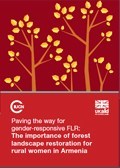Programme d’Actions du Gouvernement pour l’Emergence et le Développement Durable I (2011 - 2015)
Dans le cadre de relever les défis majeurs qui persistent en matière de développement du capital humain, de consolidation de la gouvernance, de la croissance ainsi que d’autres préoccupations transversales telles que la préservation de l’environnement et la promotion du genre, le Burkina Faso a élaboré le Programme d’Actions du Gouvernement pour l’Emergence et le Développement Durable (PAGEDD) pour la période 2011-2015.





